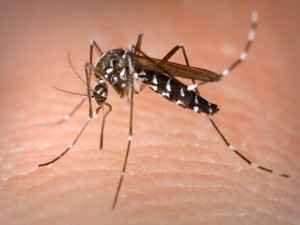Zika virus concerns prompt travel advisory and blood donation wait times
Administrator | Feb 03, 2016 | Comments 0
 The board of health for Hastings Prince Edward Public Health was told travellers to countries where the Zika virus exists should take precautions. Specifically, those who are pregnant or planning to become pregnant, may wish to avoid non-essential travel.
The board of health for Hastings Prince Edward Public Health was told travellers to countries where the Zika virus exists should take precautions. Specifically, those who are pregnant or planning to become pregnant, may wish to avoid non-essential travel.
“For Canadians, the level of risk is small, but not zero,” said Dr. Richard Schabas, medical officer of health.
The mosquito-borne virus has been linked to babies being born with abnormally small heads and other birth defects. The World Health Organization (WHO) declared an international public health emergency Monday about the condition known as “microcephaly”.
WHO experts strongly expect a relationship between Zika infection during pregnancy and microcephaly. WHO’s International Health Regulations Emergency Committee on Zika virus “found no public health justification for restrictions on travel or trade to prevent the spread of Zika virus.”
However, travel advisories continue for 26 countries where cases of the virus have been reported, including: Barbados, Bolivia, Brazil, Columbia, Costa Rica, Curacao, Dominican Republic, Ecuador, El Salvador, French Guiana, Guadeloupe, Guatemala, Guyana and Haiti, Honduras, Jamaica, Martinique, Mexico, Nicaragua, Panama, Paraguay, Puerto Rico, Saint Marti, Suriname, the US Virgin Islands and Venezuela.
People who travel outside Canada won’t be able to donate blood for 21 days after their return, Canadian Blood Services said Tuesday. The eligibility criteria will change to include the waiting period to mitigate the risk of Zika virus entering the country’s blood supply. Incubation time for the virus is said to be three to 12 days.
Dr. Schabas noted the virus is carried by a certain type of mosquito that is not found in Canada, but is common in the southern hemisphere and is relatively new to the Americas.
“In most people, it causes mild illness (fever, rash, joint pain, conjunctivitis (red eyes), said Schabas. “This is a new and emerging threat with a level of uncertainty that we cannot avoid at this time as the situation is unfolding. Pregnant women or those planning to become pregnant may wish to avoid non-essential travel to countries where the incidence of infection is greater.”
Filed Under: Local News
About the Author:
































